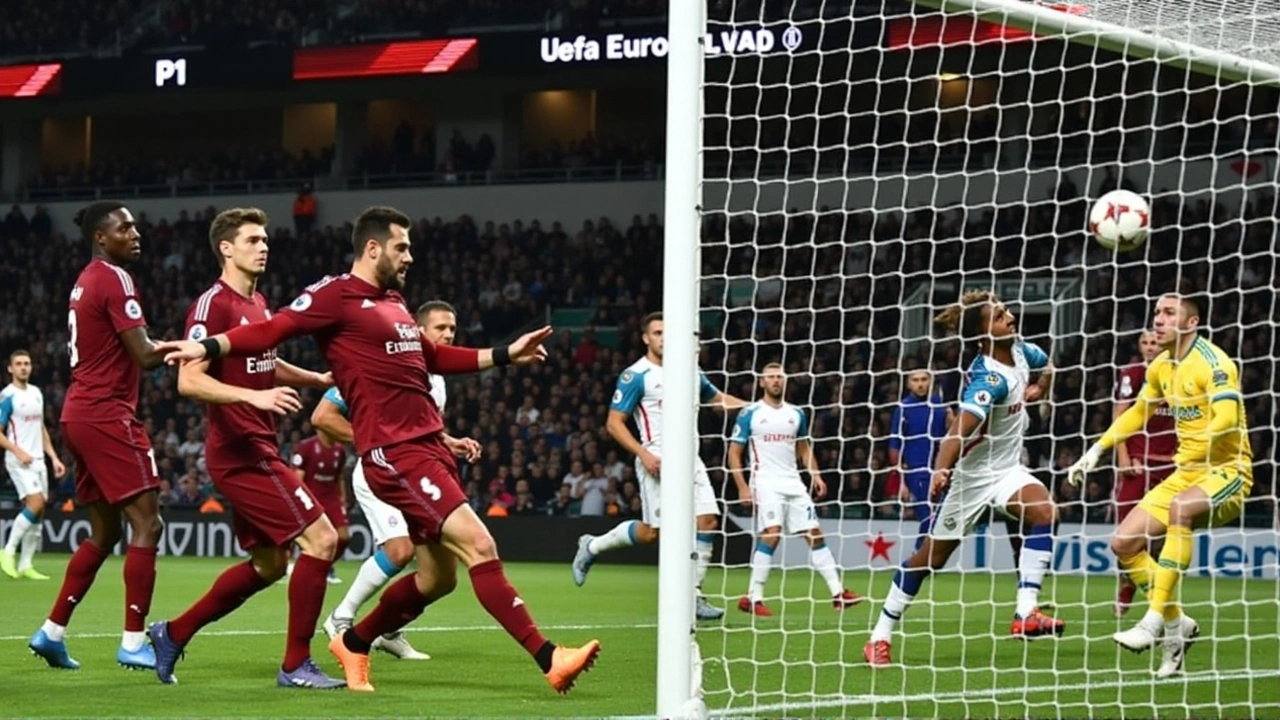- Noam Chomsky: Celebrating the Intellectual Titan and Moral Beacon Jun 19, 2024
- South African Wonderkid Shandre Campbell Seals Groundbreaking Move to Club Brugge Jul 11, 2024
- Simone Biles Champions U.S. Women's Gymnastics Team and Silences Critics at Paris Olympics Jul 31, 2024
- New Memoir Exposes Shocking Allegations Against Sean 'Diddy' Combs: Control, Cheating, and Abuse Sep 22, 2024
- Comprehensive List of 2024 Paris Olympics Medal Winners: Daily Updates and Highlights Jul 28, 2024
Europa League: How it works and what to watch
The Europa League is more than a consolation prize. Win it and your club can earn a spot in next season’s Champions League. That makes every knockout tie intense and full of meaning — for fans, players and club budgets alike. If you care about rising stars and tactical battles, this competition often serves up both.
How the Europa League works
Teams get into the Europa League in a few ways: direct qualification from domestic leagues, by winning domestic cups, or by dropping out of Champions League qualifying. The competition starts with a group phase, moves into knockouts, and finishes with a single final. Recent UEFA changes mean the calendar and routes can shift, so check official UEFA lists when fixtures are published.
Unlike league play, ties are often decided over two legs in knockouts. That creates different tactics: some teams play tight away and attack at home, while others chase early dominance. Away goals no longer decide ties, so matches go to extra time and penalties when needed. That makes each second-leg lineup choice and substitution count more than ever.
What to watch this season
Want practical things to look for when you follow the Europa League? Start here.
- Breakout players: The Europa League is a showcase. Young midfielders and forwards use it to earn bigger moves and national-team calls. Keep an eye on players who suddenly get more minutes and start influencing games.
- Manager moves and tactics: Managers often rotate squads. That can reveal fresh tactical ideas — a coach willing to press high, or one set on counter-attacks. Those tactical tweaks matter in two-legged ties.
- Form vs. fatigue: Clubs juggling domestic cups, league races and Europe feel the strain. Teams that manage rotations smartly tend to last longer. Check lineups and injury news before kick-off.
- VAR and refereeing: Tight calls can flip a tie. Expect VAR reviews in crucial moments. If a match has a controversial substitution or a concussion-sub situation, it can spark wider debate and influence outcomes.
Where to follow matches: use the official UEFA site for fixtures and live updates, follow club social feeds for lineups and minute-by-minute posts, and use reliable live-score apps for real-time results. Local broadcasters and streaming platforms often carry the games too — check regional schedules.
Quick tips for fans: set alerts for second-leg kickoffs, follow injury reports 24 hours before matchday, and watch press conferences to read manager intent. If you bet, set limits and check official odds only.
Want Europa League updates on African EduNews Tree? Hit the tag page, bookmark it, or subscribe to get match previews, result roundups and player headlines as they come in. The Europa League gives surprises — and that’s the best part.
Lazio's Stalemate with Ludogorets Highlights Europa League's Unpredictability
- Katlego Sean Mahaye
- Nov 29, 2024
Lazio's flawless string of victories in the Europa League came to a halt as they drew 0-0 against Ludogorets at Stadio Olimpico. Despite maintaining their lead in the group with 12 points from four matches, the draw was an unexpected twist. Meanwhile, Athletic Bilbao and Olympique Lyon enjoyed convincing triumphs. The match showcased the Europa League's competitive spirit and unpredictability.
Roma Aims for Comeback Against Leverkusen in Crucial Europa League Semifinal Match
- Katlego Sean Mahaye
- May 9, 2024
Roma faces a challenging Europa League semifinal against Leverkusen, aiming to overturn a 2-0 deficit. Key insights from coach Daniele De Rossi and the crucial roles of Tommaso Baldanzi and goalkeeper Mile Svilar highlight the strategic shifts needed. This match could define Roma's continental ambitions.

